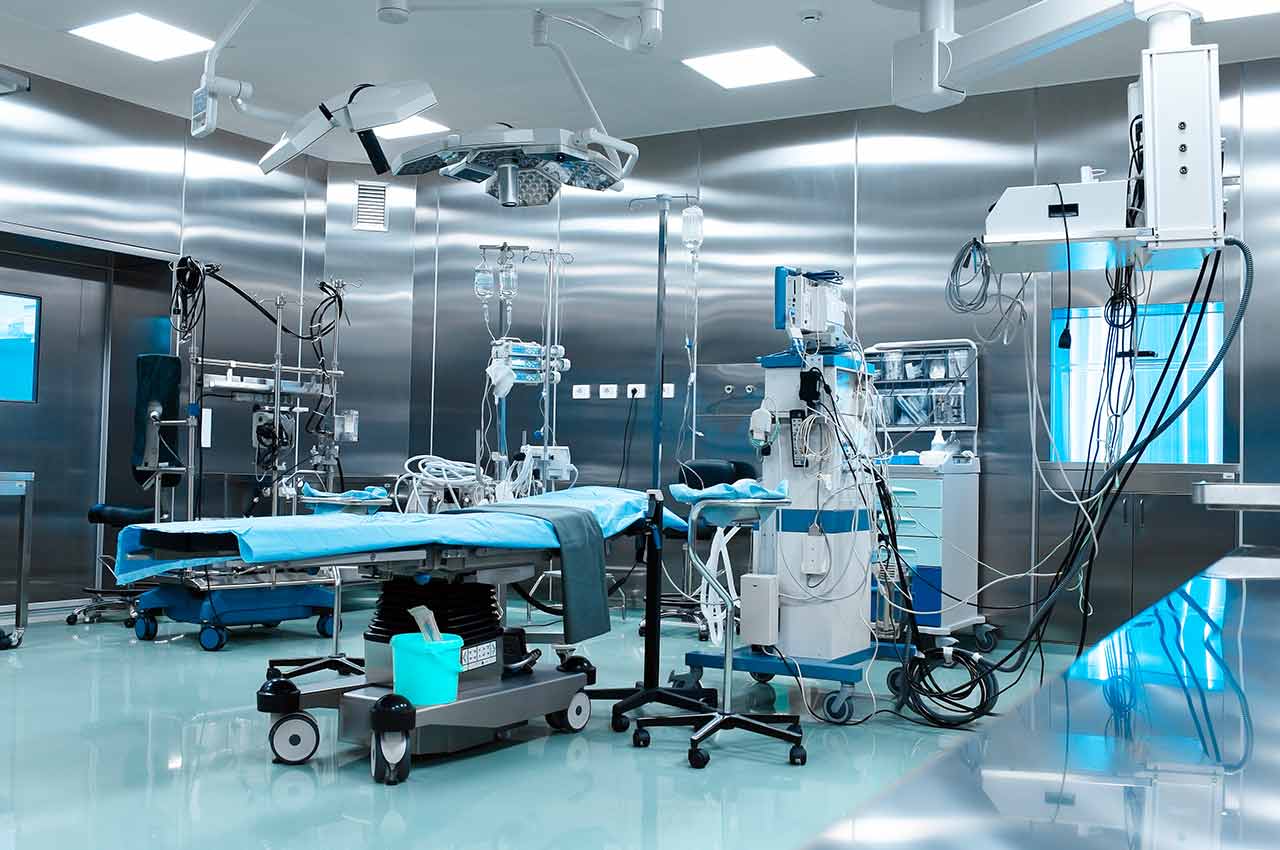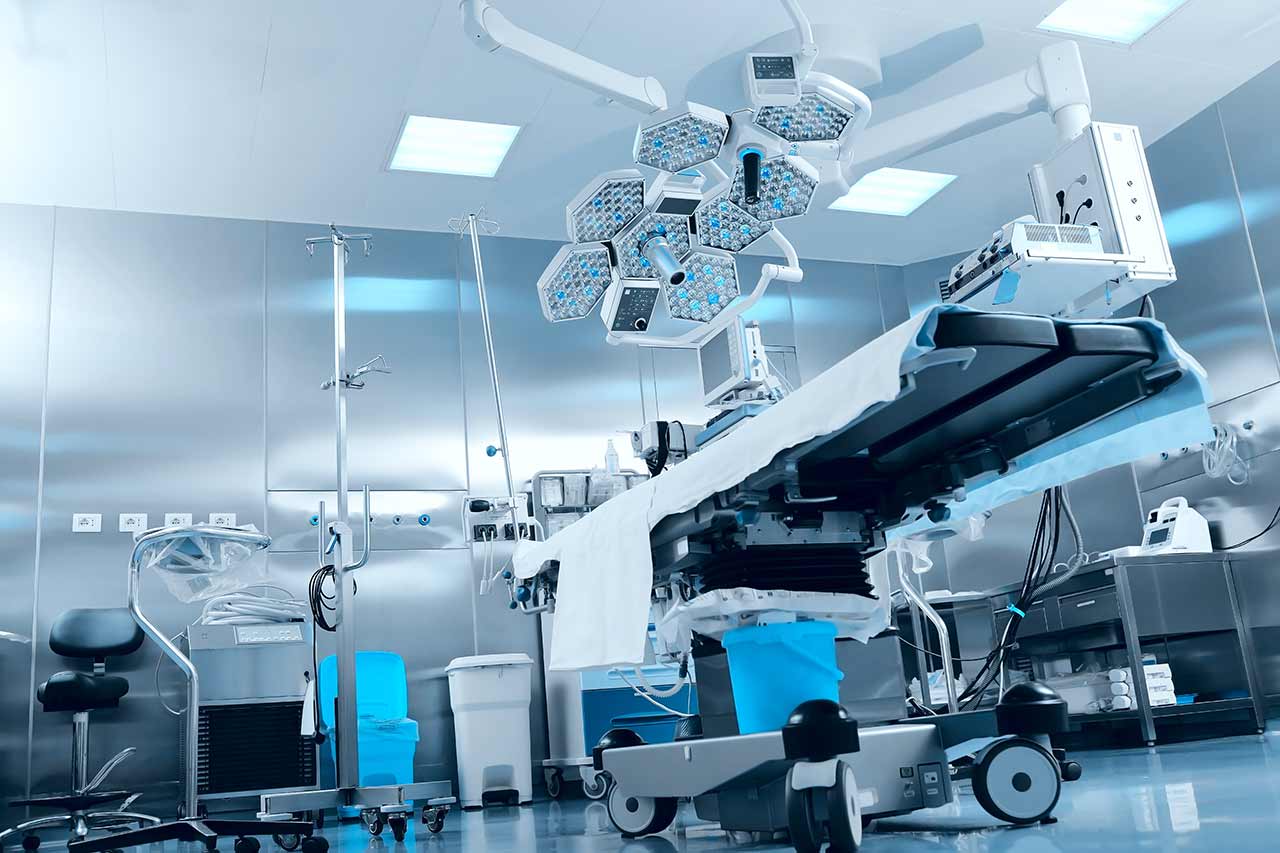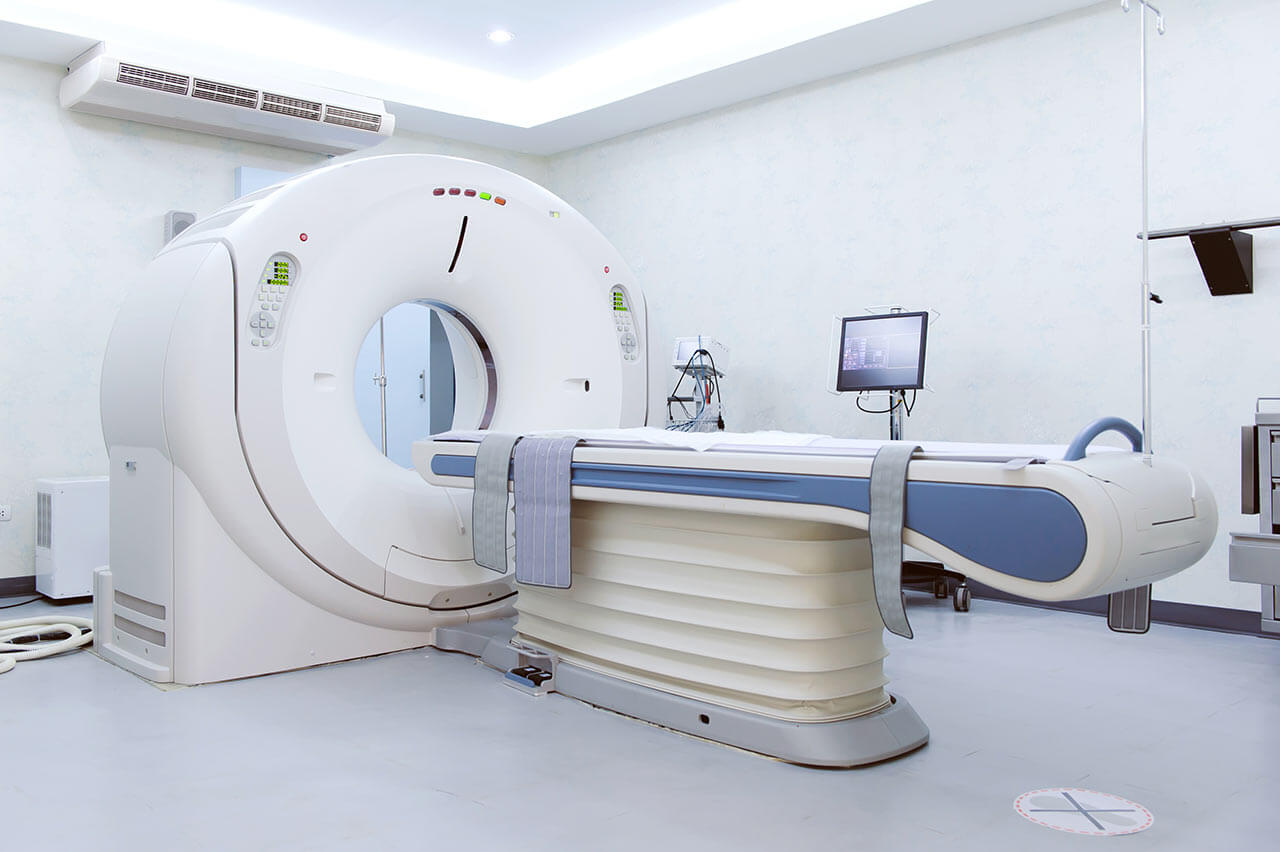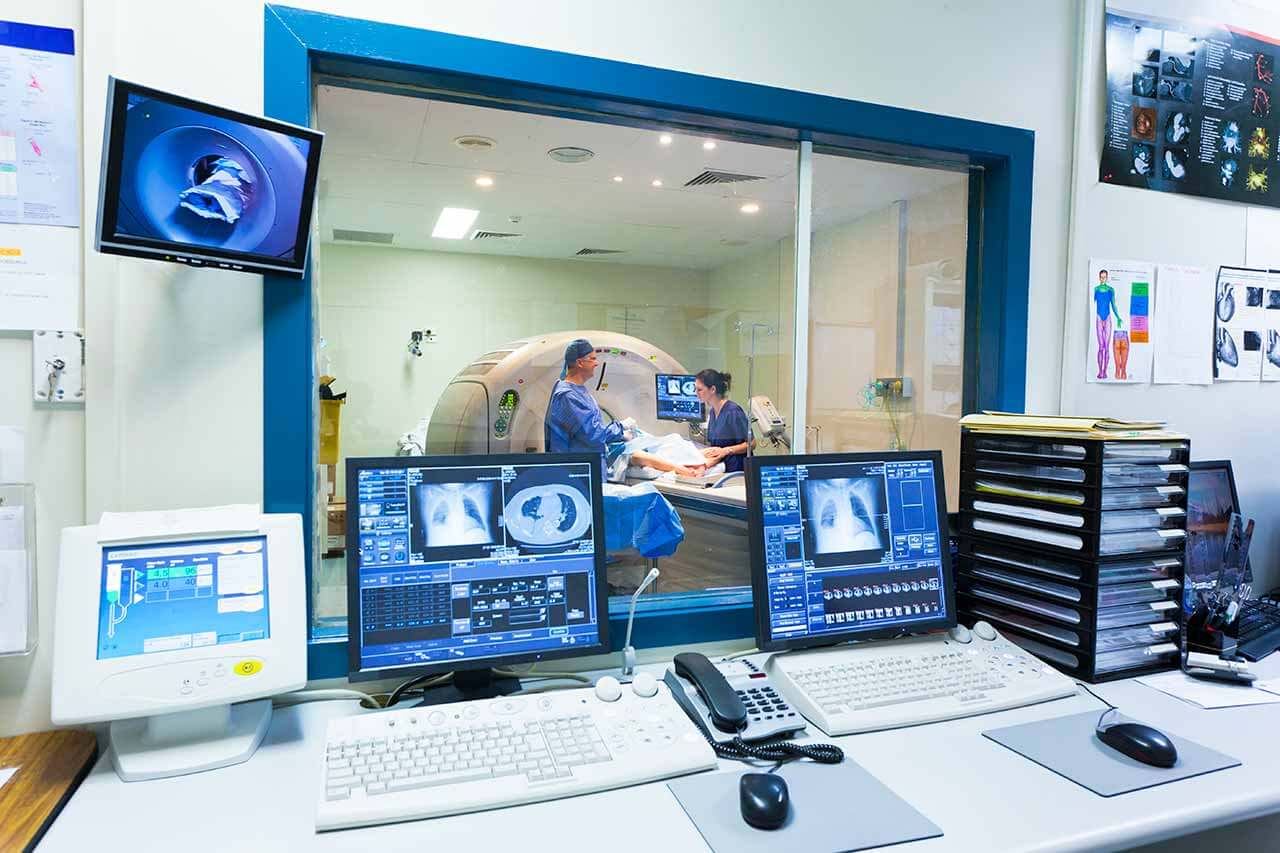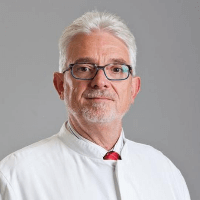
The program includes:
- Initial presentation in the clinic
- clinical history taking
- review of medical records
- physical examination
- urological examination
- laboratory tests:
- complete blood count
- general urine analysis
- biochemical blood test
- inflammation markers (CRP, ESR)
- blood coagulation analysis (aPTT, PT, INR)
- tumor markers, PSA
- ultrasound of pelvic organs (abdominal or through rectum)
- PSMA PET-CT
- nursing services
- consultation of related specialists
- treatment by chief physician and all leading experts
- explanation of individual treatment plan
Required documents
- Medical records
- MRI/CT scan (not older than 3 months)
- Biopsy results (if available)
Service
You may also book:
 BookingHealth Price from:
BookingHealth Price from:
About the department
The Department of Nuclear Medicine at the University Hospital Frankfurt am Main offers the full range of modern diagnostics and therapy using various radioisotopes.
The department is headed by Prof. Dr. med. Frank Grünwald. In 1990, the doctor had his board certification in nuclear medicine, after which he worked for about 10 years at the University Hospital Bonn. At the moment, Prof. Grünwald, who has over 30 years of experience in treating patients with radionuclide methods, is recognized as one of the best specialists in Germany. He always makes every effort to ensure that his patients receive first-class medical care. The doctor has special experience in radioiodine therapy, positron emission tomography, and the use of radionuclide methods for cancer treatment. He is a member of many professional organizations and a winner of awards for his scientific work. He authored about 90 publications in the scientific literature, as well as some full books and individual chapters of books on nuclear medicine.
The department is equipped with the advanced systems for carrying out such high-precision and informative examinations as SPECT, PET, etc. The department carries out more than 8,000 outpatient examinations annually. The key focus in the field of diagnostics is on the detection of neurological, cardiac and oncological diseases. The department's therapeutic options include the treatment of benign and malignant diseases of the thyroid gland, pain therapy in bone metastases, treatment of malignant tumors in children (for example, neuroblastomas). The spectrum is also complemented by such innovative techniques as radiosynoviorthesis, selective internal radiation therapy and radioimmunotherapy.
Of particular interest to the department's specialists is the diagnostics and treatment of thyroid diseases. To make an accurate diagnosis, they conduct reliable and proven examinations, such as ultrasound and scintigraphy. The doctors mostly have to deal with such pathologies as goiter, thyroid hyperfunction and hypofunction, Graves' disease, thyroid inflammations, thyroid cancer. Once an accurate diagnosis is made, the doctor will develop an individualized treatment regimen aimed at the successful treatment outcome. One of the most common treatment methods is radioiodine therapy.
The service range of the department includes:
| Diagnostics |
|
| Therapy |
|
| Other diagnostic examinations and treatment methods |
Curriculum vitae
- 1978 - 1984 Study of Human Medicine at the University of Bonn.
- 1984 Medical state examination.
- 1984 Admission to medical practice.
- 1984 - 1986 Research Fellow at the Institute of Physiology I of the University of Bonn.
- 1986 Doctoral Degree.
- 1986 Research Fellow in the Department of Nuclear Medicine at the University of Bonn
- 1990 Board certification in Nuclear Medicine.
- 1992 Habilitation in Nuclear Medicine and appointment as PD.
- 1992 Senior Physician in the Department of Nuclear Medicine.
- 1994 Leading Senior Physician in the Department of Nuclear Medicine.
- 1997 Appointed as an Extraordinary Professor.
- 1999 Taking up the duties as the Head of the Department of Nuclear Medicine at the University Hospital Frankfurt am Main.
Photo of the doctor: (c) Universitätsklinikum Frankfurt
Sources:
About hospital
According to the reputable Focus magazine, the University Hospital Frankfurt am Main ranks among the top German medical facilities!
The hospital was founded in 1914 and today is a well-known German medical facility, which combines rich traditions and scientific innovations. A medical team of more than 6,500 employees cares about the health of patients around the clock, ensuring them with the highest standards of medical care and best possible safety.
The hospital has 32 specialized departments and more than 20 research institutes, which have all the necessary resources for the provision of the most effective care for any patient. The hospital has 1,488 beds for inpatient medical care. The medical facility diagnoses and treats more than 51,000 inpatients and about 44,800 outpatients every year. Due to the demonstration of outstanding treatment results, the number of patients seeking medical care here increases significantly annually.
The hospital presents all areas of modern medicine, whereas its special competence lies in neuroscience, oncology, cardiovascular medicine, cardiac surgery and other fields. Many treatment methods available here are unique not only in Europe, but also internationally.
Photo: (c) depositphotos
Accommodation in hospital
Patients rooms
The patients of the University Hospital Frankfurt am Main live in comfortable rooms made in modern design and meeting the highest standards of European medicine. Each room is equipped with an ensuite bathroom with a toilet and a shower. The standard room includes a comfortable, automatically adjustable bed, a bedside table, a wardrobe, a table and chairs for receiving visitors and a TV. If desired, patients can use Wi-Fi. The patients can also stay in the enhanced-comfort rooms.
Meals and Menus
The patient and his accompanying person have a daily choice of three menus. If for any reason you do not eat all the food, you will be offered an individual menu. Please inform the medical staff about your dietary preferences prior to the treatment.
Further details
Standard rooms include:
Religion
Religious services are available upon request.
Accompanying person
During the inpatient program, an accompanying person may stay with you in a patient room or in a hotel of your choice.
Hotel
During the outpatient program, you may stay in a hotel of your choice. Managers will help you choose the most suitable options.
